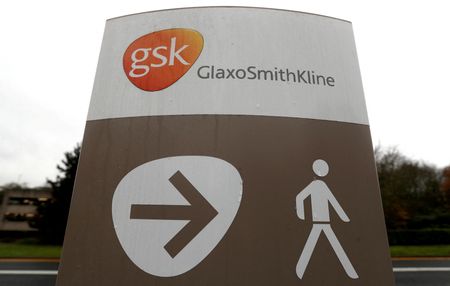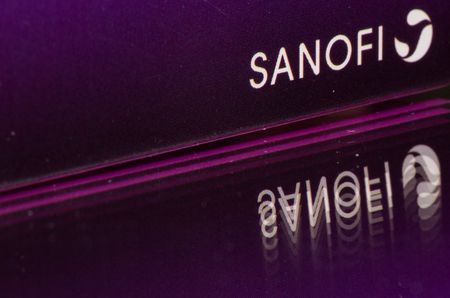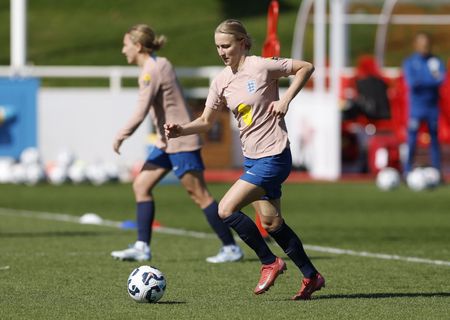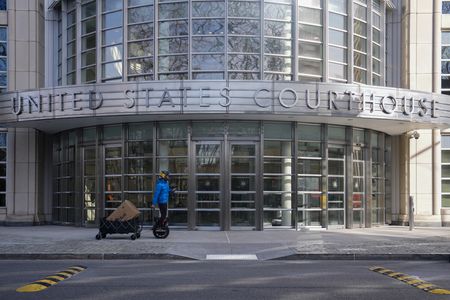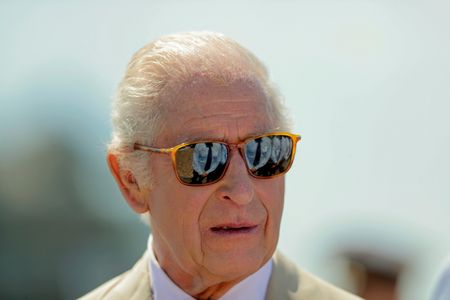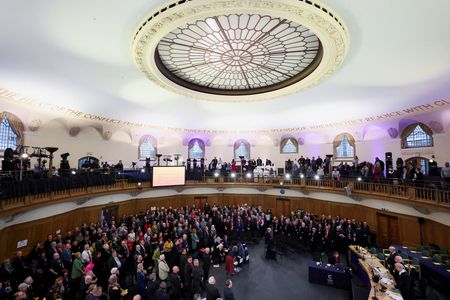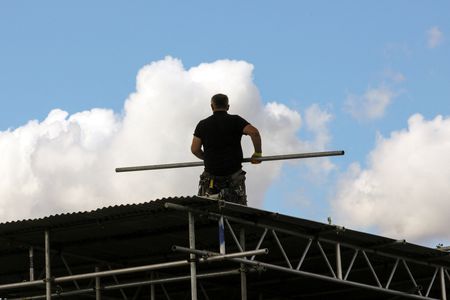By Benoit Van Overstraeten
PARIS (Reuters) – Sanofi and GlaxoSmithKline said on Wednesday they expect data from late-stage clinical trials of its booster dose of their COVID-19 vaccine candidate in the first quarter, instead of this year, another delay for the potential shot.
The news came as the French and British partners said preliminary data from trials showed the single-dose booster provided strong immune responses.
The companies said they need more time to test the booster on more people who have not been infected by the virus before they can submit data to regulators.
The Phase III trial for the recombinant adjuvanted COVID-19 vaccine recruited most participants in the third quarter, coinciding with a significant increase in the number of people infected globally due to the Delta variant, it said.
“To provide the necessary data to regulatory authorities for the booster vaccine submission, the trial will continue to accrue the number of events needed for analysis, with results expected in Q1, 2022.”
No safety concerns were identified.
This is the latest delay for the vaccine’s development, putting the companies further behind rivals in the race for COVID-19 shots.
They were forced to start a new clinical trial of the vaccine candidate after trials last year showed an insufficient immune response in older people.
In May, the companies had said the vaccine could be approved by the year-end after initially targeting the first half of the year.
Sanofi’s shares in Paris were down 0.4%, while GSK in London was down 0.3% by 0921 GMT.
Jefferies said the initial data was encouraging, but noted the delay to the trial results.
“Vaccine sales would be almost entirely upside to current (consensus), so no change to estimates likely, but success could be a welcome boost to narrative,” they said in a note.
The protein-based vaccine uses the same technology as one of Sanofi’s seasonal influenza vaccines coupled with an adjuvant, a substance that acts as a booster to the shot, made by GSK.
At the end of September, Sanofi dropped its plans for its own mRNA-based COVID-19 vaccine because of the dominance achieved by BioNTech-Pfizer and Moderna in using the technology to fight the pandemic.
[L1N2QU0BI]
BOOSTER SHOT
“The booster was well tolerated, with a safety profile similar to currently approved COVID-19 vaccines. This is the most comprehensive booster trial to date to explore boosting across different vaccine technologies used for primary vaccination”, the companies said in a statement.
The booster shot has been tested for all age groups and for people who have received four of the most widely approved shots – AstraZeneca, Johnson & Johnson, Moderna and Pfizer/BioNTech – as part of their primary vaccine.
It was administered between four and ten months after a complete primary vaccination schedule.
The Omicron variant was not circulating during the trial.
“Preliminary results from the VAT0002 clinical trial investigating the safety and immunogenicity of the booster showed neutralizing antibodies increased nine to 43-fold regardless of the primary vaccine received (AstraZeneca, Johnson & Johnson, Moderna, Pfizer/BioNTech) and for all age groups tested”, Sanofi said.
The company said this was the most “comprehensive” booster trial to date as European countries grapple with a new wave of COVID-19 infections fuelled by the Delta variant of the virus and are gearing up for the new more contagious Omicron variant.
Sanofi also it was continuing “its contribution to global public health needs” with the manufacturing of up to half a billion doses from BioNTech/Pfizer, Moderna, and Johnson & Johnson vaccines.
(Reporting by Benoit Van Overstraeten; Additional reporting by Silvia Aloisi; Writing by Josephine Mason; Editing by Tom Hogue and Louise Heavens)

